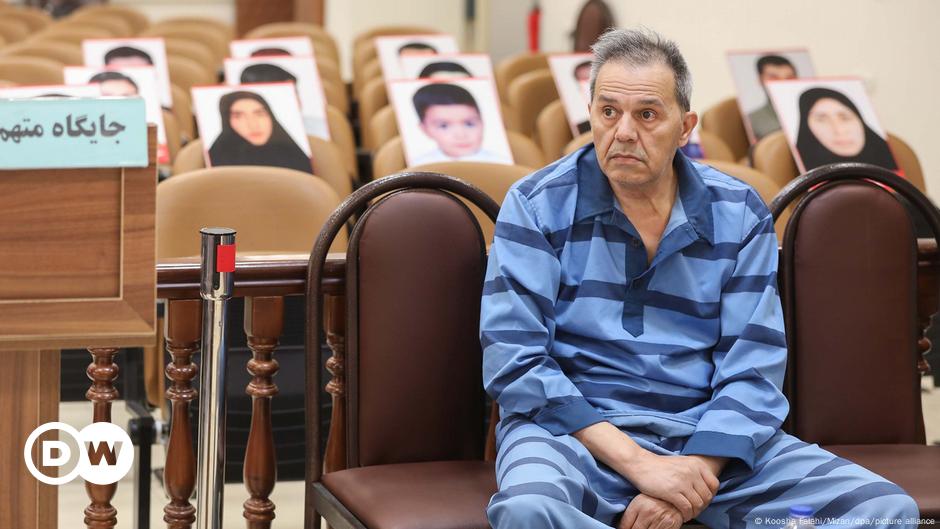Critical Insights from the Execution of Jamshid Sharmahd: A Case of Repression and Injustice
The execution of Jamshid Sharmahd, a 67-year-old Iranian-German citizen, highlights the Iranian government’s systemic human rights violations and suppression of dissent. Abducted in 2020 while traveling from Germany to India, Sharmahd was transferred to Iran, where he was tried and sentenced to death for an alleged bombing plot in Shiraz. Despite his consistent denial of the charges, the Supreme Court upheld the sentence. The Iranian judiciary justified his execution on charges of “corruption on earth.” Sharmahd’s denial and the absence of substantial evidence, beyond forced confessions, illustrate the widespread use of coercion in politically motivated trials.
Sharmahd’s execution provoked international diplomatic reactions. Germany, through Foreign Minister Annalena Baerbock, condemned the execution, emphasizing the failure of diplomatic efforts to prevent it and the resulting strain on Iran’s international relations. U.S. Deputy Special Envoy for Iran, Abram Paley, criticized the execution as part of a disturbing trend of cross-border repression and state-led executions, pointing to Sharmahd’s abduction, alleged torture, and sham trial as evidence of Iran’s extrajudicial practices. Human rights organizations, such as the Iran Human Rights Organization, condemned Sharmahd’s unlawful abduction and the broader trend of targeting dissidents beyond Iran’s borders. These actions, including forced confessions, erode the credibility of Iran’s judicial system and pose a global threat to dissidents, underscoring the need for stronger international protections.
The execution of Sharmahd, along with similar incidents, reinforces several critical lessons:
- Repression of Dissent: The Iranian regime’s repression of dissent, both domestically and internationally, reflects its complete intolerance for opposition. The systematic targeting of critics highlights the regime’s determination to eliminate perceived threats to maintain control. Whether inside or outside Iran, activists and individuals who voice opposition face severe consequences. A notable example is journalist Ruhollah Zam, who ran an anti-government Telegram channel. Despite living in exile in France, Zam was lured to Iraq, captured, and extradited to Iran, where he was tried and executed in December 2020. His case illustrates the regime’s aggressive efforts to silence dissent, even beyond its borders.
- Use of Coercive Tactics: The use of forced confessions and torture to secure convictions is a characteristic tactic of the Iranian regime. These confessions are often televised to justify harsh sentences, such as charges related to “corruption on earth,” which carry severe penalties, including execution. The case of Navid Afkari, an Iranian wrestler who participated in anti-government protests, exemplifies this practice. Afkari was tortured and coerced into confessing to a crime he did not commit. Despite widespread international outcry, he was executed in 2020, underscoring the regime’s reliance on such tactics to suppress dissent and control the narrative.
- Transnational Surveillance and Abductions: The Iranian regime uses its embassies and official organizations to conduct surveillance on Iranian citizens living abroad. This network allows the Iranian regime to identify and document the activities of those it perceives as threats. The assassination of Iranian dissident Mohammad Reza Kolahi Samadi in the Netherlands in 2015 exemplifies the lengths to which the regime will go. Kolahi, who had been living under an assumed identity for decades, was targeted and killed, illustrating the regime’s willingness to deploy resources for the surveillance and elimination of its critics internationally.
- Denial of Political Prisoners: Despite repeated denials by Iranian authorities regarding the existence of political prisoners, numerous incidents prove otherwise. The imprisonment of political figures, journalists, and human rights defenders is well-documented. A prominent example is Fatem Sepahri, an activist and journalist vocal about the regime’s human rights violations. She was arrested for her peaceful activism and sentenced to a lengthy prison term. This case, along with many others, contradicts the regime’s claims and highlights its consistent use of imprisonment and harsh sentences to silence opposition.
The execution of Jamshid Sharmahd underscores a series of enduring lessons regarding the Iranian regime’s approach to dissent, justice, and international relations. The regime’s reliance on coerced confessions, transnational abductions, and extrajudicial measures reveals entrenched practices that violate human rights. The global response, though significant, highlights the need for sustained, unified international strategies to hold such regimes accountable and protect human rights.
Mayasa 27.10.2024



















